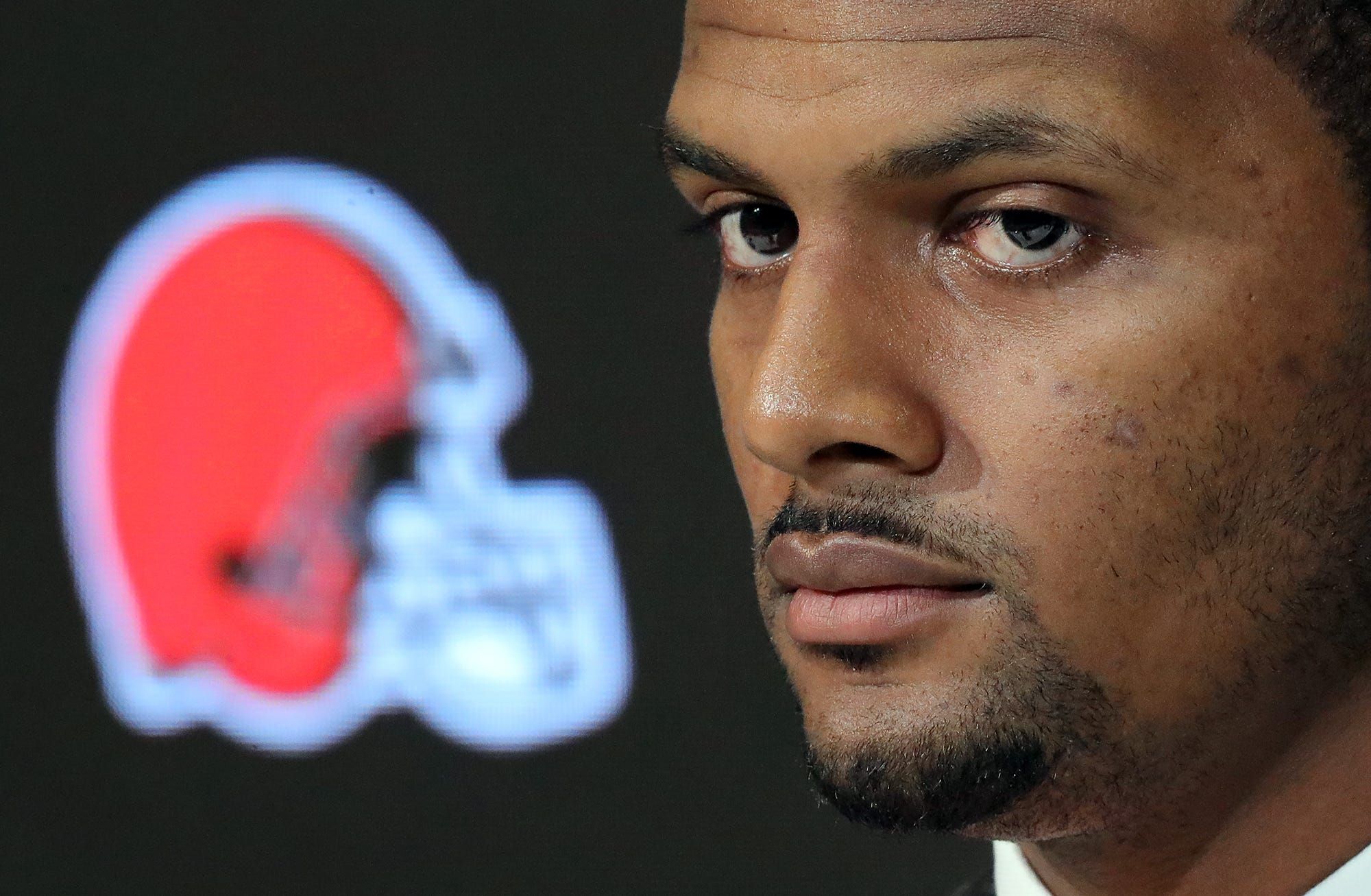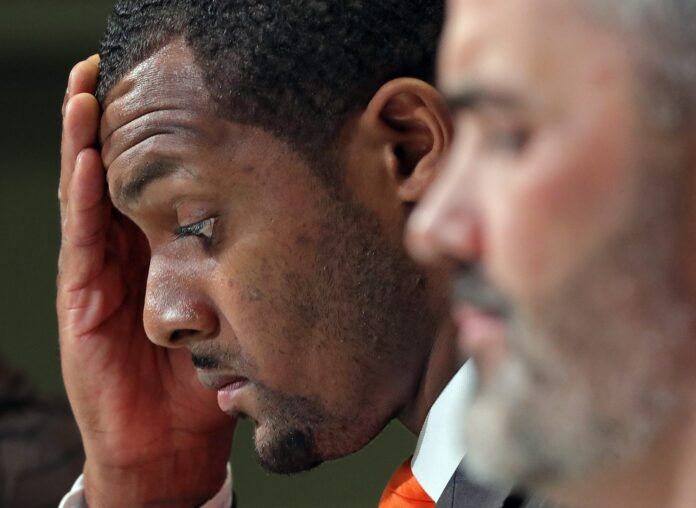The Cleveland Browns will debut Deshaun Watson against his former team, the Houston Texans, in the very city he was alleged to have engaged in sexual misconduct against over 25 women.
The NFL as a whole could not have sent a more tone-deaf message than having Watson play in the stadium of the team that he used to represent — and that allegedly enabled him — when he contacted all those massage therapists before allegedly repeatedly violating their boundaries.
It’s important to note that the NFL league office did not initially choose this date; it was a product of a back-and-forth with the player’s union about the length of the suspension that could have turned into a legal battle that both parties were seeking to avoid.
But the NFL at large — the players, coaches, owners, and executives — ended up arriving at this date, a somewhat morbid coincidence.
The NFL Has an Obligation Beyond Entertainment
This brings into focus the larger question about what obligation the NFL has to its fans, and in particular, to the fans most affected by the actions of the most high-profile players that are supposed to represent their team and their city.
The NFL is a culture-producer. There is no way to get around this fact. It’s not a one-way street; the NFL has emerged as a product of our culture and reinforces the values that it chooses to reflect back onto society.
As an enormous cultural institution, it has value-setting power. Not only does it have a very clear impact on the children that look up to the athletes that play the game, but it has the more subtle power of providing a barometer on what society at large considers to be acceptable.
The cultural reach of the NFL is extraordinary. The NFL regularly tops television ratings on a weekly basis, it’s normal to wear replica NFL jerseys to non-football events, and football analogies fill our social, economic, and political lives. Cities and states will spend billions to keep an NFL team in their area despite the questionable economic returns, and political figures make time to attend NFL events, especially the Super Bowl.
The Browns are confident that Watson, a former MVP candidate during his time with the Texans, can turn them into a winning organization. That focus — on wins more than anything else — is why the NFL constantly finds itself at the wrong end of large issues and is how it reinforces harmful values and sends damaging messages.
And the message that the NFL is sending to victims of sexual violence is that their experiences don’t matter and that their concerns are secondary to dollars and entertainment.
Deshaun Watson Wasn’t Declared ‘Innocent’ — He’s Simply ‘Not Guilty.’ That Matters
It is notable that Watson was never indicted by a grand jury, but it’s not a contradiction to argue that Watson was credibly accused by over two dozen women while also acknowledging that he never made it to a criminal trial. Not only are there often barriers to a criminal trial that don’t exonerate the alleged perpetrator — it’s why the legal system deems defendants “not guilty” rather than “innocent.”
Victims may not be able to complete the legal process because being forced to relive trauma can be agonizing, as can constant questioning of the details of a case. Power dynamics and public scrutiny can weigh on victims, and the psychological nature of trauma can make recounting events difficult, leading to the incorrect conclusion that victims inconsistent in their testimony are misleading juries.
Not only that, but the legal system is subject to the same biases that society is. It is, after all, made up of people that are not hermetically sealed away from the rest of the world.
It is also not appropriate to subject the NFL to the same overwhelming standard that criminal cases are subject to. Not even civil cases are subject to the same evidentiary burden as criminal cases — often using a “preponderance of evidence” standard instead of “beyond a reasonable doubt,” or the difference between 51 percent and substantially higher.
The reason the law has a higher standard than the rest of society is that governments have a monopoly on the use of violence — the punishment for crime is incarceration, not the loss of a high-profile job.
Our social institutions have social obligations — in much the same way that we shun friends, give preferential treatment to people that are nice to us, or how companies follow company policy, we subject ourselves to standards besides “reasonable doubt.”
Watson does not have the right to an NFL job, even if one could argue he should not lose his right to be employed in general. The NFL is a different beast than another industry in a lower-profile position. Being a high-profile NFL player is a position of prominence and carries with it the privileges of an enormous salary and a large platform.
Deshaun Watson’s Accusers Are Credible
The mountain of reporting from multiple outlets independently verifying the stories of these women tells us that any institution with an obligation to send the right signal cannot take Watson at his word. It takes a lot to believe the word of one person over 20-plus people.
Some of Watson’s accusers are hoping to remind the NFL, at least for one week, of his behavior. Several of them will be attending the game.
Despite the number and credibility of the accusers, the Cleveland Browns never reached out to any of the alleged victims — explaining that their lawyers advised them against it — even though a number of the accusers were not pursuing justice through the criminal system. This also did not prevent the NFL from reaching out and interviewing a few of the accusers.
Instead, the Browns hired private investigators and talked to Watson’s legal team, headed up by the same lawyer who flippantly dismissed the accusers by noting that many massages have “happy endings.”

Deshaun Watson’s Apologies and ‘Remorse’ Ring Hollow
The reminder that Watson was guaranteed nearly a quarter-billion dollars after allegedly engaging in sexual misconduct against over two dozen women is sickening, and so is the fact that Watson showcased neither remorse for his behavior nor an appreciation for the systemic issues at play.
His initial response in May was to say he had no regrets, and he later demonstrated a lack of remorse in arbitration with the NFL. Judge Sue Robinson noted that “Mr. Watson’s pattern of conduct is more egregious than any before reviewed by the NFL.”
Watson would later go on to state that he actually did have remorse for how the situation unfolded but protested even a six-game suspension, much less the 11-game suspension that was eventually handed down.
After the NFL had announced the conclusions of their disciplinary process, Watson said, “I take accountability for the decisions I made,” in a statement without explaining what it means to “take accountability” besides saying the word “accountability” once in a public statement.
The closest thing to accountability — counseling — is something he’s publicly pushed back on. Even while maintaining his innocence, Watson could have emphasized the importance of public awareness of sexual violence, the difficulties inherent in the legal system, and the seriousness of the issue.
Instead, we see someone resentful of how his behavior has impacted those around him get the chance to make millions of dollars in front of the very crowd of people he betrayed in their hometown.
As Diana Moskovitz of the Defector wrote, “This is a story about how our criminal justice system works, how our courts work, how power works.”
Deshaun Watson suiting up on Sunday tells us exactly how that story played out.

